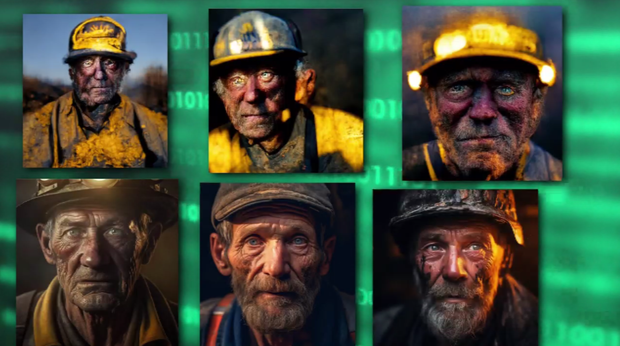CHICAGO (CBS) – Victims who were sucked in by scammers have shared their stories with CBS 2 time and time again.
They were romantics left with broken hearts and empty wallets.
“My mind was so brainwashed.”
“I believed this person. That’s why I fell for her.”
“This person doesn’t even exist. This person wasn’t a real person.”
CBS 2 has shared the stories of multiple romantics who were left with broken hearts and empty wallets. More and more people are getting played, so CBS 2 wanted to find out how the romance scam game is getting more sophisticated.
Nearly everyone looks for a love story. Kevin Davis is literally the face of one, well, several, actually.
He’s a romance book cover model.
“I have a pretty large following now and a lot of my photos are out there for the general public,” Davis said.
CBS
Steamy pictures and sultry videos are on his Instagram and all over TikTok.
The problem is, “I don’t have a TikTok account,” he said.
Reporter: “So none of those are you?”
Davis: “None of those are me.”
He added, “They will say ‘Oh, this is Kevin. This is a special account I have to talk to my fans.”
It was a classic page out of the romance scammer handbook: express interest in a victim, profess love, and then ask for money.
“I hate to hear about these situations,” Davis said.
Such situations have cost Americans more than $2 billion since 2021, according to the Federal Trade Commission.
Natalie Reda, a former postal service inspector for the Chicago area, said she thinks the scamming is only going to get worse. Her job is to investigate romance scams that involve mail. She knows victims who have sent and lost loads of money due to these scams.
“I’ve cried with them because it’s so hard to listen to their stories,” Reda said.
Almost worse than the heartbreak is the feeling of falling behind.
“The scammers have all day to learn new technology where, you know, we have to get our paperwork done,” she said.
The new technology included artificial intelligence-created videos.
Mike Reilley teaches data and digital journalism at the University of Illinois Chicago, including how to spot phony content created with AI software. CBS 2 played him a series of videos apparently sent by romance scammers to their lovers.
“The eyebrows are a big tell there,” Reilley said of one video.
In another video, “the movement of the mouth doesn’t sink up well with the audio at all.”
While some of the AI-generated images may look like low-level work, technology is getting better. A look at two photos shows AI’s improvement in less than two years, from ugly pixelation to horrifyingly real.
Provided to CBS
“AI is great,” Reilley said. “It’ll do many wonderful things, but in the hands of bad actors, this is something that’s very, very dangerous.”
So, how easy is it for “bad actors” to access the type of AI software used in such scams?
“Most of it’s free,” Reilley said.
Another way romance scammers are flipping their script is by ditching cash for cryptocurrency like Bitcoin.
CBS 2 spoke to Oscar Maldonado, a financial crimes detective with the Naperville Police Department.
Reporter: What makes it difficult when somebody comes to you and says, ‘Well, I gave them money via Bitcoin?'”
Maldonado: “Just how fast that money can kinda disperse.”
More and more of Maldonado’s cases involve residents who fall in love and feed cash to cryptocurrency machines like those found at several local gas stations.
“That money is basically there instantly,” he said. “It isn’t like a wire, a bank-to-bank wire which kind of takes some time.”
They’re cash transfers to something called a “wallet.” Then, it can get deposited into the different wallets, Maldonado said. It’s a spiderweb of transactions that are often too cumbersome for investigators to track.
“That money could be in eight or nine or 10 different wallets by the end of the day,” Maldonado said.
In Chicago, fraud cases involving cryptocurrency have been coming in by the hundreds each year.
Over the last decade, there were more than 6,000 deceptive practice cases in Chicago where various cryptocurrencies were mentioned in police reports, according to a CBS 2 data analysis of Chicago police data obtained through a Freedom of Information Act request.
Between 2013 and 2023, the dollar amount reportedly taken from these crypto-related cases was more than $27.6 million, according to an analysis of case property data.
CBS 2 reviewed several files documenting the same details about how the swindling began with the victims meeting someone online.
That includes one case in June of 2021, where a 28-year-old woman was defrauded of more than $260,000 while purchasing Bitcoin, or another where a 58-year-old man lost $240,000 worth of Ethereum cryptocurrency in September of 2022 when advised to invest in a company. That victim, a Rogers Park resident, claimed to have met the offender on Facebook, according to a police report of the incident.
Since 2013, there were more than 2,300 cases mentioning Facebook and nearly 500 cases mentioning Instagram.
Take it from Davis, the model, whose stolen pictures are used to trick people.
“I would say if someone’s contacting you and you don’t know them, be very suspicious,” Davis said.
He’s helping shine a spotlight on the dark side of love.
“I don’t want to be the face of a scammer,” he said.
The CBS News investigation into the troubling world of online romance scams continues on Tuesday on CBS Mornings with a daughter’s crusade to prevent others from falling for the scam that ended tragically for her mother.
Credit: Source link









